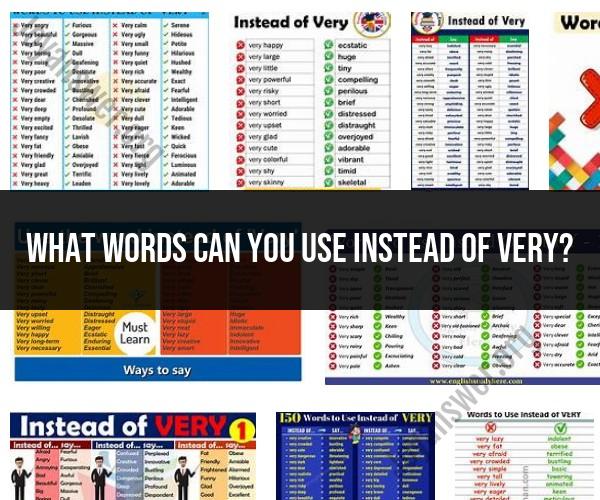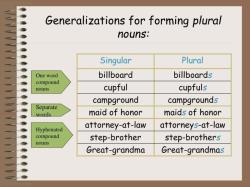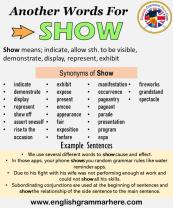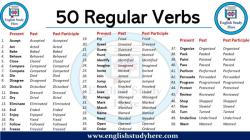What words can you use instead of very?
Expanding your vocabulary by using alternatives to "very" can make your writing and speech more descriptive and precise. Here are some words you can use instead of "very," along with examples of how they can be used:
Extremely: It intensifies the degree of the adjective or adverb.
- The weather is extremely hot today.
Incredibly: Suggests a high level of something.
- She is incredibly talented.
Exceptionally: Indicates an exception or stands out from the norm.
- The restaurant offers exceptionally delicious food.
Terribly: Used for emphasizing a negative quality or outcome.
- I felt terribly tired after the long journey.
Remarkably: Highlights something notable or unusual.
- Her progress in the project has been remarkably fast.
Exceedingly: Suggests that something goes beyond a certain level.
- His work ethic is exceedingly admirable.
Intensely: Implies a high level of intensity or concentration.
- The movie's plot was intensely engaging.
Profoundly: Used to emphasize depth or significance.
- His speech had a profoundly moving impact on the audience.
Mildly: Suggests a slight degree of something.
- I was mildly surprised by the news.
Utterly: Emphasizes completeness or extremeness.
- The room was utterly silent.
Exceptionally: Suggests something is an exception to the rule.
- She was exceptionally kind to everyone she met.
Considerably: Indicates a noticeable or significant degree.
- The price of the car has decreased considerably.
Intimately: Suggests a deep or close connection.
- He knew the subject matter intimately.
Exclusively: Implies that something is available or restricted only to a specific group or condition.
- The event was exclusively for members.
Vastly: Suggests a large or immense degree.
- The city has vastly expanded in recent years.
Astonishingly: Indicates something is surprising or amazing.
- The results of the experiment were astonishingly accurate.
Considerably: Suggests a significant or substantial degree.
- His income increased considerably after the promotion.
Using these alternatives to "very" can enhance your language and make your expressions more varied and impactful. The choice of which word to use will depend on the specific context and the level of emphasis you want to convey.
1. Expanding Your Vocabulary: Words to Use Instead of "Very"
The word "very" is a common intensifier, but it can also be overused and unoriginal. If you're looking to expand your vocabulary and find more specific and descriptive ways to express your thoughts and feelings, here are a few words to use instead of "very":
- Extremely
- Incredibly
- Unbelievably
- Astonishingly
- Remarkably
- Exceptionally
- Immensely
- Massively
- Profoundly
- Thoroughly
- Utterly
- Completely
- Totally
When choosing a word to use instead of "very," consider the context in which you're using it. For example, if you're describing a strong emotion, you might say "extremely" or "incredibly." If you're describing a surprising or unexpected event, you might say "unbelievably" or "astonishingly." And if you're describing something that is very good or very bad, you might say "exceptionally" or "profoundly."
2. More Than "Very": Synonyms to Enhance Your Language
Here are a few more creative and expressive words to use instead of "very":
- Off the charts
- Over the top
- Through the roof
- Through the stratosphere
- Second to none
- Top-notch
- First-rate
- Superior
- Exemplary
- Outstanding
- Phenomenal
- Marvellous
- Splendid
These words can be used to add emphasis and excitement to your writing or speech. For example, instead of saying "I was very happy to see you," you could say "I was overjoyed to see you!" Or, instead of saying "This is a very good book," you could say "This is a top-notch book!"
3. Enriching Your Expressions: Alternatives to the Word "Very"
When describing something, there are many alternatives to the word "very." Here are a few examples:
- Extremely well-written
- Incredibly moving
- Unbelievably funny
- Astonishingly intelligent
- Remarkably talented
- Exceptionally beautiful
- Immensely helpful
- Massively successful
- Profoundly insightful
- Thoroughly enjoyable
- Utterly terrifying
- Completely exhausted
- Totally satisfied
These phrases can be used to convey a more specific and detailed sense of something. For example, instead of saying "This is a very good movie," you could say "This is an extremely well-written movie with incredible acting." Or, instead of saying "This is a very bad day," you could say "This is a completely exhausting and utterly frustrating day."
By using more specific and descriptive language, you can expand your vocabulary, enhance your language, and enrich your expressions.













